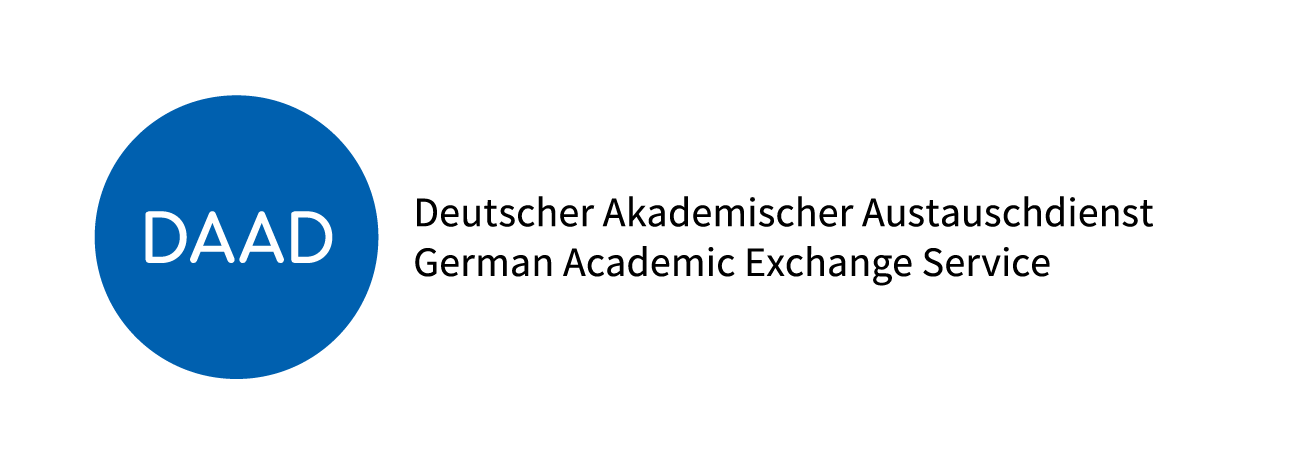8 Ways Studying Abroad in Germany can Benefit your Career
Learn about the ways studying abroad in Germany can help jumpstart your career.

Entering the job market as a new grad can be tough these days. Competition is fierce and many employers expect some relevant experience even for entry-level roles. Preparing yourself for the workforce while you’re still in school is key to hitting the ground running after earning your degree.
Studying abroad in Germany is a fantastic way to gain skills valued by employers and will certainly help you stand out when you start applying for jobs. If you want to get ahead of the game, read on to learn about how studying abroad in Germany can benefit your career!

Funding Opportunities to Study in Germany Through DAAD
The German Academic Exchange Service, known by its acronym DAAD in German, is an organization that offers various scholarships and research grants to study in Germany for all academic levels and fields. If you've ever considered studying in Germany, check out the informational page DAAD and Go Overseas have created together to provide comprehensive overview on studying in Germany.
1. You’ll develop personal and professional skills that employers love
Employers value “soft skills” just as much as (if not more than) job-specific “hard skills”. Here are some of the personal attributes you’ll have the opportunity to develop when studying in Germany:
- Flexibility: Navigating life in another culture requires a good deal of flexibility. You’ll encounter new ways of doing things and different etiquette and norms that you’ll need to be open to. Employers like to see flexible employees who can roll with the punches as companies grow and change.
- Adaptability: Adapting to a new environment means you are able to truly fit in. Living abroad will push you out of your comfort zone. Those who have a truly enjoyable study abroad experience are able to adapt to those changes.
- How to be a self-starter: Moving to a new country takes a lot of guts. From taking care of administrative tasks related to immigration (be prepared for a lot of paperwork) to finding housing and getting set up, you’ve got to be a self-starter who takes control and gets things done.
- Motivation: In German universities, class and seminar attendance is not always mandatory so being disciplined and motivated is important to stay on track and on top of deadlines.
- Punctuality: If you’re someone who is chronically running late, studying and living in Germany will help set you straight. Germans pride themselves on their punctuality and showing up late is considered rude. Whether it’s class, work, or an outing with friends, being on time will show everyone will appreciate you making them a priority.
- Confidence: Nothing boosts your confidence more than facing the challenge of moving abroad. You’ll feel there’s nothing you can’t do. Being confident in life spills over into the workplace: your coworkers will be drawn to you and your boss will see leadership material.
- Independence: When you’ve conquered your study abroad adventure, you’ll find you’ve grown into not only a more confident but a more independent person. You won’t need anyone to hold your hand because you already know you can do it yourself. There’s nothing your future supervisor will love more than your ability to take the reigns in the workplace with little oversight.
2. It will help you build a solid professional network

Never underestimate the role that professional networking plays in building and furthering your career. To some extent, it has always been about who you know, but today more than ever, having connections can be the extra push you need to get your foot in the door.
Studying abroad in Germany can help you begin to develop an international network of professionals in your field whom you can reach out to for advice, mentoring, and of course, job leads. It’s important to note though that networking takes some work. You’ll need to put in time getting to know your professors, seeking out research opportunities, and attending in-person events. Don’t forget to keep your LinkedIn profile updated!
3. It will get you noticed by top German companies in the US
There are a number of top German companies with US offices looking to hire grads with cultural and linguistic knowledge specific to Germany. Some of the biggest names include:
- adidas
- Lufthansa
- BMW
- Puma
- Allianz
- Aldi
- Random House
- Volkswagen
- Knorr Brake Company
- DHL
Studying abroad in Germany for part or all of your degree demonstrates your familiarity with the country’s business practices, cultural norms, and values and shows German employers you’re a good fit.
4. You’ll learn valuable language skills
Learning another language has scientifically backed benefits. It can help improve memory and concentration, boost creativity, and is good for overall brain health. In your professional world, speaking even elementary German will open up doors to better or more interesting positions. In Europe, German is a key language in international business, economics, and politics.
If you have plans to stick around in Germany after graduation, gaining language skills during your studies is a must. The good news is that many universities offer free German classes to international students outside of their usual degree plans.
5. You can gain expertise in intercultural communication

Studying abroad in Germany gives you the opportunity to learn how to work with people from different backgrounds. Your classes will expose you to not only German students but classmates from all over the world.
Germany is a top destination for students from India, China, Syria, Austria, and Turkey to name a few. Intercultural communication is an art when surrounded by such a mix of experiences, cultures, and language abilities and as a student in Germany, you’ll have the opportunity to become an expert!
6. You can begin your career with little to no debt
How can graduating with very little or no debt be a career benefit, you may be wondering? Aside from student loan debt being a huge bummer, it also potentially limits the jobs you can take. A large monthly payment staring you down each month will put an immense amount of pressure on you to take the highest-paying job, even if it doesn’t align with your goals or values.
Germany’s low education costs mean you won’t be graduating with tens of thousands of dollars in student debt and you can focus on finding the job that’s the perfect fit, regardless of the pay. Spend your hard-earned paycheck on things that matter to you, not a loan payment!
Even with low education costs, there are still funding opportunities available to make studying in Germany even more affordable. The German Academic Exchange Service (DAAD) offers numerous scholarships and paid research positions for international undergraduate and graduate students.
7. You’ll graduate with priceless international work experience
Many degree programs in Germany incorporate hands-on experience relevant to the subject, whether that be research or fieldwork. Even if your program doesn’t, students on a valid visa can work up to 20 hours a week outside of their studies. This allows you to apply to any position you’re qualified for.
International work experience is impressive to employers, even if it’s not in your field of study, because it shows you took the initiative to go the extra mile outside of university classes. If you take a job in an unrelated field, be sure to highlight transferable skills on your resume!
8. It will expand your employability at home and abroad
Studying abroad in Germany doesn’t just make you an attractive candidate for German companies in the US. Your well-respected and globally recognized education makes you more employable to a range of companies across the US, Europe, and beyond.
If Germany steals your heart and you can’t bear to leave after your studies though, you can legally stay up to 18 months after graduation to search for a job. Having a German education shows local employers that you were trained to a high standard and understand the values, norms, and culture of the country. They’ll be eager to retain diverse talent and strengthen their workforce.
Study abroad in Germany: Your future career will thank you!

Attending higher education in Germany can take you places and set you up for success. No matter what field or career you hope to pursue, a German education is internationally respected for excellence in academics and research. Grow as a person and a professional by studying abroad in Germany!
